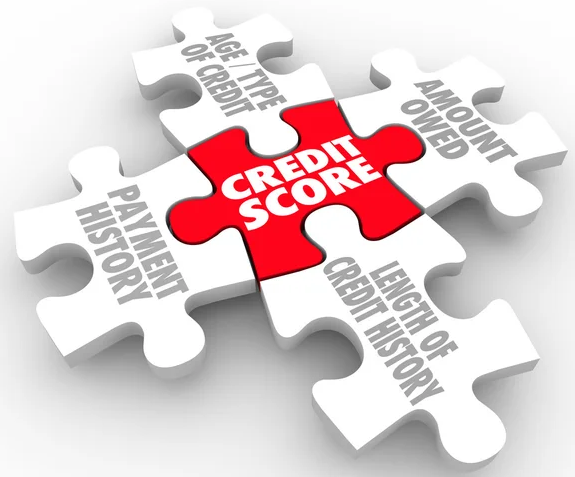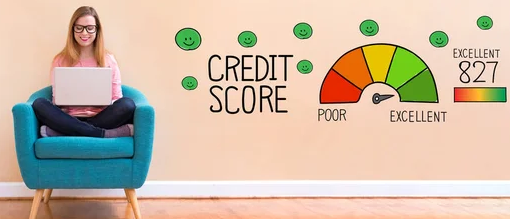Do you want to manage your finances better and reduce the stress that comes with it? Debt consolidation could be the solution.
It entails combining several debts into one source. You typically transfer them into a new account with lower interest. You may find better terms and relieve the burden of multiple payments.
Consolidation impacts your credit score, which affects your ability to borrow money. It has short-term and long-term benefits but could carry potential risks. Understanding these effects sets you on a better path toward positive financial health.
Learn about debt consolidation and its benefits, risks, and credit impact. We cover temporary and long-term effects and how to achieve better financial health.
What is debt consolidation?
A debt consolidation service involves specific strategies to merge multiple repayments into one. It aims to make your loans more manageable and simplify the process. You may also find lower interest rates.
Various methods of debt consolidation exist. Below are three common options.
- Personal loans provide a single monthly payment fixed over a set term. You lend a lump sum to settle individual existing debts. Finding a relief program for personal loans helps you navigate your situation better.
- Balance transfer cards involve moving your existing debt to a new credit card. It should have a low or 0% introductory interest rate. This option streamlines your repayments into one. It saves you money if you settle the balance before the charges increase.
- Home equity loans give you collateral from the value of your house or property. This option often comes with lower interest rates than credit cards. It’s an extreme choice, as you risk losing your residence if you miss payments.
Creditors may work with you to manage debt consolidation successfully. Approaching them can help you avoid further pursuit from collection services. They may also sit with you to create a manageable repayment plan that suits your situation.
United Financial Network services include various debt consolidation options. They help you select the right choice based on your financial situation. Find expert guidance on using personal loans, home equity, or balance transfer cards.
Exploring the components of credit scores

Credit score components are vital to note when considering debt consolidation. Understanding each element helps you maintain or improve your rating. They also assist your eligibility for better payment terms and rates.
Below are five primary components of credit scores.
- Payment history contributes the most to your credit score by looking at past transactional behaviors. It determines whether you usually settle your debts on time. A good track record shows lenders you’re responsible and reliable.
- Credit utilization measures the amount of loan funds you’re using. Keeping your ratio at 30% or less is best. Higher usage signals risk to your lenders. It could affect your credit score negatively.
- Length of credit history. The age of your accounts plays a vital role in your track record. A longer history typically shows responsible loan management. It contributes to a higher credit score and earns favorable terms from lenders.
- New credit. This factor assesses how many active credit accounts you’ve opened. It looks at the frequency of hard inquiries against your name. Applying for too many over a brief period has a negative impact.
- Credit mix looks at various sources. It assesses the different accounts you have, including cards, auto loans, and mortgages. A mix of different types shows responsible management. It usually affects your score positively.
Your financial activities influence each of these components in unique ways. For example, missed or late settlements lower your credit score. A consistent payment history improves your creditworthiness.
A credit card debt relief program can help you get your finances back on track. Opening new accounts and maintaining a long repayment history influences your score positively.
The short-term impacts of debt consolidation on credit score
Applying for a consolidation loan has several short-term impacts initially. Lenders conduct a hard inquiry on your report to determine your creditworthiness. These investigations reflect on your records and may cause a temporary credit score dip.
A hard inquiry isn’t a serious cause for concern. Its impacts decrease gradually when you meet your loan repayments on time. Keep them consistent to minimize the temporary effects.
Opening a new account for consolidating debt affects your score. It could decrease the average age of your credit history. Your utilization ratio may also fluctuate. Managing a fresh loan responsibly can restore your ratings.
Debt consolidation could affect your credit utilization rate. Transfer owed amounts with high interest to a new loan with lower charges. This action improves your usage ratio and increases your scores. It also boosts creditworthiness by showing responsible financial behavior.
Your credit score may dip temporarily after consolidating your debts. Understanding the impacts and following expert advice helps you make informed decisions. Your financial health can see improvement if you make regular and timely payments.
Below are five other short-term impacts of debt consolidation on your credit score.
- Consolidating multiple accounts reduces your debts while creating a lower balance. This impact affects your credit score positively.
- A single combined payment simplifies your finances. It becomes easier to avoid late fees and control your debts.
- You may find lower interest rates with your new single loan. It helps you save money and improve your credit score and history.
- Consolidating your debt into one account restores your financial power. It reduces the stress of handling multiple payments.
- Debt consolidation makes money management easier and frees up your time and effort.
Taking back control of your finances clears your mind of clutter. It helps you to focus your mental energy on other responsibilities. The short-term benefits show when you meet your monthly payments.
The long-term impacts of debt consolidation on credit score
Debt consolidation also has long-term impacts on your credit score. It may improve various areas of your financial health and reputation. The benefits could accumulate and relieve the excess stress of loans.
Making consistent, on-time payments helps you build a positive profile history. It demonstrates responsible financial behavior and increases creditworthiness.
Meet the monthly debt consolidation loan payments to see your credit score improve. Ensure you budget for the amount owed, and the associated charges or interest fees.
68% of consumers experienced better credit scores after debt consolidation in 2019. A study found that they gained over 20 points and their performance improved. The benefits continued a year later, showing positive long-term results.
Credit utilization reduction is a benefit that takes effect as you pay off your debt. It shows lenders you’re using less of your available funds. Your score also improves, as it indicates better financial management.
A well-rounded credit profile includes various types, like cards, medical loans, and mortgages. Debt consolidation could lead to credit mix improvement. It shows lenders your ability to manage several sources.
A consolidated loan also benefits your credit history length. Closing old accounts as part of the consolidation process shortens it. Managing your funds responsibly lengthens it over time. The longer it is, the more it impacts your score positively.
Potential risks and negative impacts of debt consolidation

Debt consolidation has several benefits and could simplify your financial life. It also comes with potential risks, so understanding how to approach it is vital. Choosing a reputable financial services company helps you navigate it more easily.
Missed payments on your consolidation amount can damage your credit score. Failing to make them on time also has negative impacts. You could face higher interest rates and penalty fees. Defaulting on your loan may lead to debt collection and possible legal action.
The negative credit impact of failed payments could be damaging. It may also outweigh the benefits of a consolidation loan.
Your credit score could decrease if you open a new account for consolidation. It affects the average age of your profiles, but this is usually temporary. A hard inquiry on your report also affects your scores.
Your credit utilization rate may increase if you use a balance transfer card. This impact usually occurs if the new source has lower limits.
Improper management of your consolidation loan harms your credit score. Speak to your financial advisor about helping you with a repayment plan. This approach can help you avoid increased debt because of missed or late payments.
It’s tempting to spend extensively again after consolidating. The relief makes some feel like they’ve solved their issues. Try to avoid accumulating debt post-consolidation. It could undo the benefits and take you into a space of owing even more money.
Remember that debt consolidation is a step toward financial stability. It’s a helpful tool, but it requires careful management and commitment. Remain disciplined and focus on maintaining your payments to avoid potential pitfalls.
Tips to minimize negative impacts on credit score
Various effective strategies exist to minimize negative impacts on your credit score. Managing your funds and maintaining financial responsibility improves the benefits of consolidation. You also learn to understand your money boundaries, leading to personal growth.
First, knowing the terms and conditions of loans is vital. Debt consolidation comes with its own set of rules and payment guidelines. Sit with a financial advisor to ensure you understand them before you begin your journey.
Minimizing repercussions on your credit score requires strategic actions. Below are our top five tips to help you enjoy the benefits of consolidation consistently.
- Settle your accounts on schedule. Timely payments are crucial for maintaining a good credit score. Setting up reminders or automatic debits can help you avoid missing them. Paying before your billing cycle ends is best to prevent late fees.
- Use your accounts responsibly. Use less than 30% of available funds to maintain low credit utilization. Keep your balances low so your ratio remains healthy and stable. A longer repayment period with fixed interests could help manage them better.
- Avoid maxing out credit. Create a budget and stick to a limit on your spending. Overusing your cards affects your scores negatively.
- Don’t take more loans. Avoiding new debt is vital for maintaining a healthy credit score after consolidation. Try to resist making impulse purchases or signing up for new accounts. Use cash for discretionary shopping to help keep track of your funds.
- Keep track of your accounts. Practicing credit report monitoring helps you increase your financial responsibility. Check your report for common errors every month. Dispute any inaccuracies with the relevant bureau if they don’t match your history.
Implement these strategies to protect your credit score during and after debt consolidation. Self-control and responsibility leads to better financial health and peace of mind. Your future self will thank you.
Find the right debt consolidation solutions with United Financial Network

Debt consolidation impacts your credit score in various ways. You may experience short-term dips and long-term benefits throughout the journey. Careful management of your loans simplifies the process and improves your financial health.
The key points to remember are the effects on credit utilization and payment history. Managing your loan responsibly results in a positive profile, improving your creditworthiness. Hard inquiries may lower your score temporarily, but timely payments restore balance.
Informed decision-making and financial planning help you avoid potential pitfalls. Avoiding late fees and settling minimum payments has positive effects on credit scores.
United Financial Network offers expert guidance to help you navigate debt consolidation options. We work with you to achieve responsibility, security, and peace of mind. Visit us today to check if you qualify and unlock long-term financial stability.

